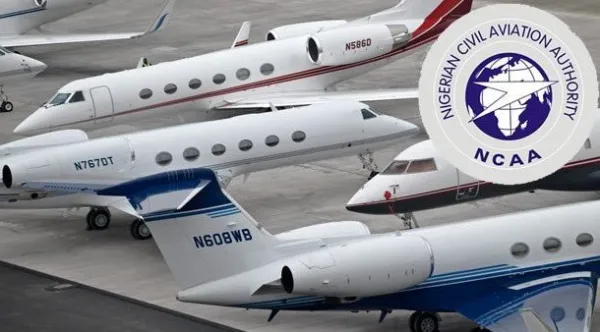- Safiu Kehinde
The Nigeria Civil Aviation Authority (NCAA) has explained why Nigeria was delisted from the United States’ Category 1 Status that disqualified Nigerian airlines to fly into U.S. as required.
This was disclosed in a statement signed by the Acting Director General, Civil Aviation, Nigeria, Capt. Chris Najomo, on Tuesday in Abuja.
According to Najomo, Nigeria like most countries must satisfactorily pass the International Aviation Safety Assessment (IASA) Programme and attain Category 1 status in order to operate into the U.S.
“The attention of the NCAA has again been drawn to a publication about the purported ban on Nigerian airlines by the United States.
“Due to the wrong impression such news could create, it has become expedient that we put this report in its proper perspective.
“Upon attaining Category 1, Nigerian airlines would be permitted to operate Nigerian registered aircraft and dry-leased foreign registered aircraft into the United States, in line with the existing Bilateral Air Services Agreement (BASA),” he said.
Najomo recalled how Nigeria attained the Category 1 for the first time August 2010, with the U.S. Federal Aviation Administration (FAA) conducting another safety assessment on Nigeria in 2014.
The FAA would again conduct further safety assessment was conducted on Nigeria in 2017, after which Nigeria retained her Category 1 status.
Meanwhile, the NCAA boss disclosed that with effect from Sept. 2022, the U.S. FAA de-listed Category 1 countries who, after a 2-year period, had no indigenous operator to provide service to the U.S. or carrying airline code of a U.S. operator.
“Also removed from the Category 1 list were countries, who the FAA was not providing technical assistance to, based on identified areas of non-compliance to international standards for safety oversight.
“No Nigerian operator has provided service into the United States using a Nigerian registered aircraft within the 2-year period preceding September, 2022.
“So, it was expected that Nigeria would be de-listed as were other countries who fell within this category. Nigeria was, therefore, de-listed since 2022 and was duly informed of this action in 2022,” he said.
However, the de-listing, of Nigeria, according to the NCAA, has absolutely nothing to do with any safety or security deficiency in the nation’s oversight system.
Ojomo stressed that Nigeria had undergone comprehensive International Civil Aviation Organisation (ICAO) Safety and Security Audits and recorded no Significant Safety Concern (SSC) or Significant Security Concern (SSeC) respectively.
“It is furthermore necessary to add that a Nigerian operator can still operate into the U.S. using an aircraft wet-leased from a country who has a current Category 1 status.
“The NCAA continues to adhere strictly to international safety and security standards and respects the sovereignty of states, including the United States of America, as enshrined in Article 1 of the Convention on International Civil Aviation.
“This provision gives states complete and exclusive sovereignty over the airspace above their territories,” he added.
NCAA boss said the Minister of Aviation and Aerospace Development, Mr Festus Keyamo, had embarked on an aggressive international campaign to empower local operators to access the dry-lease market around the world.
“Which culminated in the visit to AIRBUS in France earlier this year and the MOU signed with BOEING in Seattle, Washington just last week.
“The Honourable Minister has also done a lot of work to make Nigeria comply fully with the Cape Town Convention, which will bring back the confidence of international lessors in the Nigerian aviation market.
“We are confident that with these steps of the Honourable Minister, it is only a matter of time that Nigeria, not only regains, but can sustain its U.S. Category 1 status,” Ojomo said.


